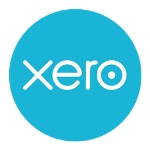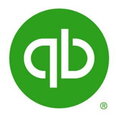Planning And Saving For Retirement As A Small Business Owner
As a small business owner, retirement planning and saving can present unique challenges. Financial advisors suggest that retirement plans should be tailored to the specific business’s situation and goals. Business owners may encounter retirement plan options such as Individual Retirement Accounts (IRAs), Simplified Employee Pension Plans (SEP IRAs) or even 401k retirement plans.
Depending on the retirement plan chosen, business owners may be able to increase retirement savings by taking advantage of tax benefits. Other retirement strategies may include self-directed retirement plans and life insurance policies. It’s important for business owners to understand their options in order to determine which retirement planning tool is best suited for their business.
When retirement savings plans are in place, business owners should regularly review and monitor the progress of their retirement portfolio. Financial advisors recommend that retirement planning should be revisited at least every two to five years or whenever a major life event occurs. It’s also important for business owners to have an emergency fund for unexpected retirement costs such as long-term care expenses.
Business owners should seek professional retirement planning advice to ensure their retirement goals are realistic and achievable. A retirement planning advisor can help business owners evaluate retirement options, determine appropriate retirement savings levels and set up a retirement plan that best meets the business owner’s needs. Retirement planning for small business owners is an important task that requires dedication, research and planning. With the right retirement plan in place, business owners can enjoy a comfortable retirement.
Determine when you plan on retiring
Once retirement planning is underway, business owners should determine when they plan to retire. This decision can have a significant impact on retirement savings and investments and should be taken seriously. Business owners may decide to begin retirement as early as age 55 or wait until after the retirement age of 65. The right retirement timing will depend on the individual business owner and their retirement goals.
Retirement planning for small business owners can be a daunting task, but it is an important part of financial health. With proper retirement planning in place, business owners can enjoy retirement with financial security and peace of mind. Investing in retirement planning now will ensure that business owners have the resources they need to live comfortably in retirement.
If you’re thinking about hiring a bookkeeper for your small business, contact us at BBS Accounting CPA today. We would be happy to discuss your specific needs and how we can help you take your business to the next level.








